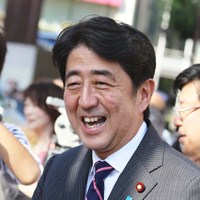If there was ever a threat to Japanese Prime Minister Shinzo Abe’s leadership in recent months, it was annihilated last weekend. Not a single candidate from Abe’s ruling Liberal Democratic Party (LDP) lost in the latest Tokyo municipal government elections, while the biggest national opposition party even fell behind the Communists. Though Abe’s political dominance could bring an end to Japan’s stretch of political instability, the country’s economic future remains shaky at best, and the lack of any meaningful opposition to the LDP can only bode ill for the country’s longer-term prospects.
Voters in Tokyo, who are generally regarded as among the most progressive in the nation, took to the polls June 23 to elect their representatives to the Tokyo municipal government. It was, however, less a vote about city issues than a de facto referendum on the prime minister’s plan to stimulate growth, dubbed “Abenomics.” In response to monetary easing and other measures during Abe’s first six months in office, the yen has plunged in value, making Japan’s products more competitive in overseas markets. Share prices in Japan have surged as a result, leading to a kind of economic euphoria that has been sorely lacking in the country for years. These heady economic prospects ultimately led to all 59 candidates from Abe’s party winning in the Tokyo elections, giving the LDP a clear majority. More worrisome, though, was the fact that the leading opposition Democratic Party tumbled to fourth place with only 15 seats, two short of the Japan Communist Party and well behind the Buddhist-backed Komei Party.
In short, Abenomics got a resounding A-plus from the citizens of Japan’s biggest and most powerful city. As the country gears up for elections in the upper house of parliament next month, Tokyo’s election results are expected to be mirrored by the nation at large. Yet voters are ultimately getting the short end of the stick, as a lack of credible opposition to the powerful LDP will likely prove harmful in the longer term.

